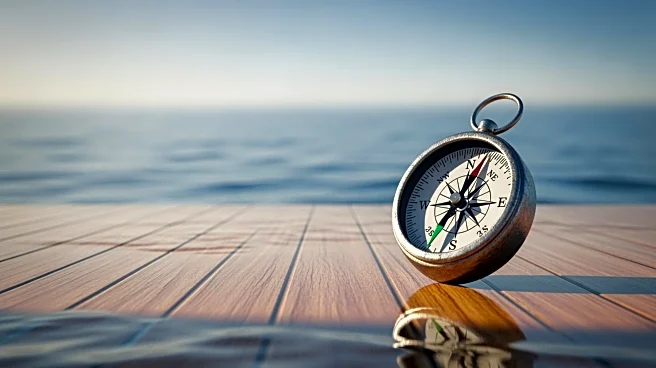What's Happening?
The Seatrade Maritime Crew Connect Global conference in Manila has brought attention to the safety of seafarers amidst increasing geopolitical tensions. Industry leaders emphasized the urgent need to protect crews navigating volatile seas, as global trade faces
challenges from rising protectionism and weakened cooperation. Thomas Kazakos, Secretary General of the International Chamber of Shipping, highlighted the shifting trade landscape and the risks faced by seafarers. Karen Davis from OCIMF warned of contested maritime spaces marked by missile launches and GPS spoofing, stressing the importance of real-time intelligence and guidance tools for mariners.
Why It's Important?
The focus on seafarer safety is crucial as geopolitical tensions threaten global trade routes and maritime security. Ensuring the safety of crews is vital for maintaining the flow of international commerce, which is essential for economic stability. The maritime industry must adapt to new security challenges, including technological threats like GPS spoofing, to protect seafarers and preserve trade operations. This situation highlights the need for collaboration between industry stakeholders and international organizations to develop effective security measures and support systems for maritime workers.
What's Next?
Industry leaders and organizations are expected to continue working on updating Best Management Practices and enhancing communication between maritime stakeholders. The development of resilient navigation aids and strengthening core navigational skills will be prioritized to mitigate risks. As geopolitical tensions persist, the maritime industry may need to invest in advanced security technologies and training programs to ensure the safety of seafarers. The ongoing collaboration between OCIMF and the IMO will play a key role in shaping future maritime security policies and practices.
Beyond the Headlines
The emphasis on seafarer safety amidst geopolitical tensions may lead to broader discussions on the ethical responsibilities of maritime companies and governments. Protecting seafarers involves not only technological solutions but also addressing human factors and ensuring fair treatment and support for maritime workers. This focus could drive changes in industry standards and regulations, promoting a more sustainable and ethical approach to maritime operations. Additionally, the situation may influence public perception of the maritime industry and its role in global trade.















